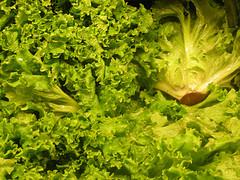
Chemical Structure of Phylloquinone (Vitamin K1) (Photo credit: Wikipedia)
Vitamin K is a fat-soluble vitamin stored in the fat tissue and in the liver. The name “K” comes from the German word Koagulationsvitamin. This vitamin helps in blood clotting and coagulation of blood.
There are three types of this vitamin– Vitamin K1, Vitamin K2, and Vitamin K3.
Found in plants, especially in green vegetables, Vitamin K1 helps in maintaining blood clotting.
Made by bacteria, Vitamin K2 protects the heart by keeping calcium out of artery linings and body tissues. It also prevents osteoporosis.
A synthetic form of vitamin, Vitamin K3 is not much-needed because it can cause toxicity in infants.
What are the health benefits of vitamin K
• Helps in blood clotting
Glumatic acid, the acid that causes carboxylation, is an important component of Vitamin K1. When blood oozes out, carboxylation makes the blood stick to a nearby tissue. This clots the open wound and prevents excess blood from flowing out.
You can recognize if a person is deficient in Vitamin K or not by checking his or her symptoms of menstrual bleeding, nose bleeding, etc.
• Helps in formation of healthy bones
Vitamin K helps in the formation of healthy bones by blocking the over-formation of osteoclasts, which take away minerals from the bones and deliver them to other bodily functions. This process is demineralization. Over the due course, this process can leave bones depleted of minerals and having the disease called osteoporosis.
• Vitamin K has Anti-Inflammatory properties
A normal level of Vitamin K reduces the release of glycoprotein interleukin-6, a component that causes inflammation in the body.
• Prevents Calcification
Calcification is a process that builds up calcium inside tissue within the body, leading to cardiovascular diseases. Vitamin K contributes to the process of carboxylation and thus prevents calcification. GLA Protein (called MGP) is formed in the process helps in the tissue formation of calcium. A person with lack of Vitamin K is at a risk of suffering from stroke, atherosclerosis and other cardiovascular diseases.

Photo by wikioticsIan
Foods with High Amount of Vitamin K
Some foods with high amount of Vitamin K include fresh and dried herbs, spring onions, Brussels sprouts, broccoli, dark green leafy vegetables, paprika, cayenne, asparagus, cabbage, pickled cucumber, prunes, kale, turnip, beef liver, spinach, and green tea.
Note: There is loss of Vitamin K when food is frozen; however, heating does not affect it.
Recommended Doses
It is advisable to check with your doctor before you consume Vitamin K1 supplements. Patients with gallbladder, celiac disease, cystic fibrosis, Crohn’s disease will benefit by consuming the vitamin in the form of multipurpose vitamins than as an individual supplement.
According to Al established by FNB in 2001, the recommended allowances are:
0 to 12 months – 2 mcg
1 to 3 years – 30 mcg
4 to 8 years – 55 mcg
9 to 13 years – 60 mcg
14 to 18 years – 75 mcg
Men above 19 years – 120 mcg
Women above 19 years – 90 mcg
Precautions
1. Because of possible side effects, take supplements only under the recommendation of a professional and certified health care provider.
2. If you are pregnant or breastfeeding, consult your doctor before taking any supplements because it is found in breast milk.
3. If you have Glucose-6-phosphate dehydrogenase deficiency, you must avoid taking this Vitamin.
4. If you take Coumadin, you should not consume Vitamin K1.
